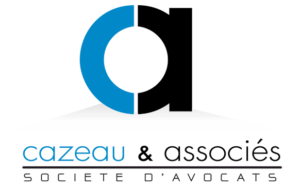Copyrights, a controversial European Directive.
“The evolution of digital technologies has changed the way works and other protected subject-matter are created, produced, distributed and exploited. New uses have emerged as well as new actors and new business models. In the digital environment, cross-border uses have also intensified and new opportunities for consumers to access copyright-protected content have materialized. Even though the objectives and principles laid down by the EU copyright framework remain sound, there is a need to adapt it to these new realities”.
These are the first words of the controversial Proposal for a directive on the on copyright in the Digital Single Market.
Indeed, September 12, 2018 after vigorous debates and more than 250 amendments tabled, the European Parliament has voted for the adoption of the Copyright reform project, by 438 votes in favor and 226 against.
From now on the Parliament and the Commission can launch the talks to come to a final version.
It should be recalled that the last European legislation about copyright date back to 2001.
The purpose advocated by Brussels was hence to adapt an obsolete legislation to the digital era, and to provide better protection to copyright holders, as creative artists and newspaper publishers.
The object of the reform is to encourage digital platforms of content sharing, such as Youtube, to provide a better remuneration for content creators, but also to create a new “neighboring right” of the copyright for newspaper publishers.
Debates were mostly focused on two provisions :
Article 11 creates a neighboring right for newspaper publishers (newspaper, magazines, press agency) which allows them to receive a better remuneration when their online content are reused. More precisely, it is planed that newspaper publishers, as future holders of reproduction rights, must benefit from a fair and proportionate remuneration for the digital use of their press publications by third service providers.
Nonetheless, the contours of a proportionate remuneration are still to be defined.
Article 13 establishes an obligation for online platforms (social networks, online video services etc.) to enter into fair and suitable license agreements with content creators and/or their beneficiary, so as to cover any situation in which online users would post without authorization a copyrighted content.
In case such license agreement is not concluded, digital platforms would have to install an automatic device for detecting and removing copyrighted contents.
Furthermore, those platforms will have to set up a complaint mechanism for user to be able to complaint if their content is wrongfully removed.
Nevertheless, this automated blocking system won’t apply to non-commercial small and medium size companies, nor companies with scientific purposes, nor research organizations (universities, research institutes, etc.).
Discussions are mainly led by two antagonist groups : the artists and the press publishers on the one hand, who struggle for a better and fairer remuneration of their work ; and the giants of the digital realm (Google, Apple, Facebook, Amazon et Microsoft) on the other hand, which denounce over constraining provisions, and a restricted access to knowledge by the establishment of a broad-based filtering of content.
The European Parliament has been subject to a strong lobbying and has endeavored to draw up a compromise text. This text strengthens the responsibility of the digital platforms concerning copyrights, which also applies to “extracts”. By contrast, the simple fact of sharing hyperlinks toward articles or “isolated words” to refer them will stand outside the new copyright legislation.
The text recalls that the legislation on copyright must be respected on the Internet without impede freedom of expression.
Closed hearing discussions may now begin between the representatives of the European Parliament and of the Council and of the Commission, also known as the “trilogue” in the European jargon. They may last several months before to reach a compromise text between the two co-legislators of the European executive. Then this text shall be subject to another vote of the Parliament during a plenary session. Only then the Member States shall start their transposition process.
Indeed, when a European directive is adopted, the Member States shall transpose the European Legislation into their national law via a transposing decree/law within a specific deadline.
In France the transposition of a European directive is an objective of constitutional value (constitutional decision number 2004-496 dated June 19, 2004, and number 2006-540 of July 27, 2006).
The obligation of transposition is an obligation of result, meaning that Member States shall use all means to transpose the directive in time. Nonetheless, even though this directive is not transposed yet, Member States shall not issue any act which could contradict the principle of the upcoming text.

